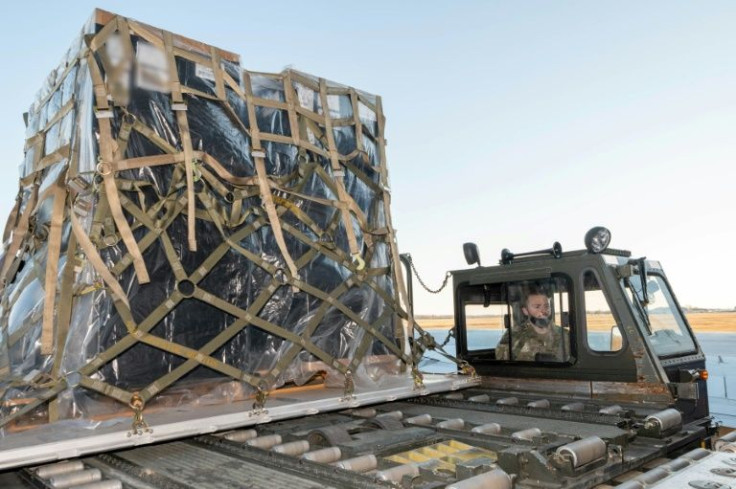EU Fears Ukraine War Could Increase Spread Of Illegal Weapons, Seeks Tighter Laws
KEY POINTS
- Around 35 million illicit weapons are reportedly in the hands of civilians across the 27-nation bloc
- Russia says the West's supplies of advanced weapons to Ukraine are finding their way onto the black market
- Europol says it is working closely with Ukrainian officials to mitigate the threat of arms trafficking
Amid growing concerns that the war in Ukraine could increase the spread of illegal weapons in Europe, the European Union on Thursday moved to tighten laws governing the trade and transport of guns to help keep illicit firearms out of the hands of criminal gangs.
The European Commission estimates that around 35 million illicit weapons are in the hands of civilians across the 27-nation bloc, Associated Press reported Thursday. Around 630,000 firearms are listed as stolen in the EU's security and border database, the report stated.
Although the commission's proposals were drawn up before the Russian invasion of Ukraine, the European Commissioner for Home Affairs, Ylva Johansson, pointed out that the conflict has raised concerns.
"Of course I trust the Ukrainian military – they are really using the weapons in the right way – but we also know that war is a disaster for people, but it's an opportunity for criminals, and we have to be prepared for that," she told reporters in Brussels.
Russia had last Thursday warned that the West's supplies of advanced weapons to Ukraine were finding their way onto the black market and then into the hands of extremist and criminal groups in the Middle East, Central Africa and Asia.
Russia's Foreign Ministry spokeswoman Maria Zakharova said that NATO members had, in total, sent at least 700 artillery systems, 80,000 missile systems, 800,000 artillery shells and 90 million rounds of ammunition to Ukraine.
"A considerable part of these weapons have already entered, or will soon enter, the black market," Zakharova told reporters in Moscow. "Now the world community is facing this," she said without providing any evidence for her claims.
While Western countries continue to supply advanced weapons to Ukraine to face Russian aggression, security officials in Europe have raised similar concerns.
In June, Interpol head Jürgen Stock warned that once the conflict in Ukraine ends, a wave of guns and heavy arms will flood the international market. He urged Interpol's member states, especially those supplying weapons, to cooperate on arms tracing.
"Criminal groups try to exploit these chaotic situations and the availability of weapons, even those used by the military and including heavy weapons. These will be available on the criminal market and will create a challenge. No country or region can deal with it in isolation because these groups operate at a global level," Stock said.
In July, the EU law enforcement agency, better known as Europol, had said in a statement that it was working closely with Ukrainian officials to mitigate the threat of arms trafficking into its region.
"A potential threat observed in war zones in the past is that firearms can fall into the wrong hands," Europol warned in a statement.
The statement further added that "the proliferation of firearms and explosives in Ukraine could lead to an increase in firearms and munitions trafficked into the EU via established smuggling routes or online platforms. This threat might even be higher once the conflict has ended."
The latest European Commission's proposal calls for the setting up of an electronic licensing system for import and export applications to replace the paper-based systems that most countries still have.
The proposal includes stricter standards on the manufacture of alarm and signal weapons that have earlier been modified by extremist groups for terror attacks. It also recommends end-user certificates for certain firearms to ensure the recipient does not plan to transfer them to someone else.
In December last year, a first major EU-wide comprehensive study on gun violence in Europe, undertaken by Flemish Peace Institute, Brussels, and titled Project Target, highlighted the risks of increased gun availability in the region.
Earlier reports repeatedly raised concerns that after the former Yugoslavia's conflicts in the 1990s and the looting of an arms depot in Albania in 1997, a wide range of Balkan arms entered Europe's black market, posing a major security risk.

© Copyright IBTimes 2024. All rights reserved.






















